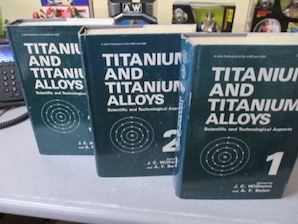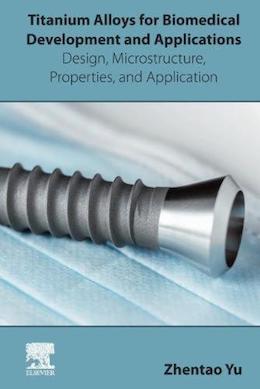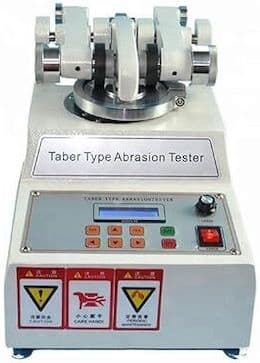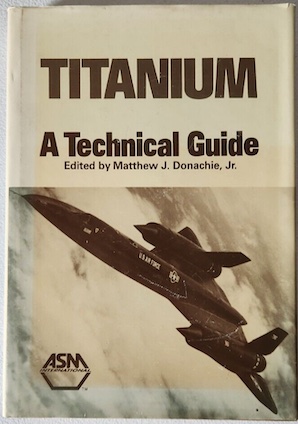
-----
Titanium Anodize - AMS 2487 and 2488 Solution Differences
Quickstart:
Type II anodizing of titanium is functional rather than decorative purposes, primarily wear resistance and anti-galling.
Readers should understand that AMS 2487 & AMS 2488 are NOT GENERIC PROCESSES. You're welcome to undertake them, but those specs don't tell you the trade secrets you need to know to successfully implement them. You may find a consultant to guide you, but you won't find out how to do them on the internet or in any book that we've seen.
Q. Question to titanium community about AMS 2488 test.
Does the 2488D or 2488E test require lubricant applied on anodized surface prior to submitting parts to the testing facility?

Anna Berkovich
Russamer Lab - Pittsburgh, Pennsylvania
(ed. update July, 2025: sorry, Anna has retired)
March 2, 2023
A. Assuming you're referring to the wear resistance testing, section 4.5.1.2 of AMS 2488E requires application of dry film to the test specimens before testing. Allowed DFL specifications and thickness are given in section 3.5.2.
Jordan Buck- Syracuse New York
October 16, 2024
⇩ Related postings, oldest first ⇩
Q. We want to anodize Ti-6Al-4V in alkali solution as per AMS 2488 type 2 having pH 12. Kindly give details regarding voltage, current density, time and details of pre/post treatments required. Any help in regard will be appreciated.
S. Sreenivasan- Bangalore, India
2001

on eBay or Amazon
or AbeBooks
(affil link)
A. Hi, Sreenivasan. I'm afraid that this is one of those unusual cases where, despite the fact that there is an AMS spec for the process, the details of the process are known by only a handful of companies and held as trade secret. Sorry, but I don't think anyone is going to print a proven process for AMS 2488. Unless you retain a consultant who is experienced in it, I think that all you can do is start by obeying the requirements of the spec, and figure out the rest through trial and error. Good luck.

Ted Mooney, P.E.
Striving to live Aloha
finishing.com - Pine Beach, New Jersey
Ted is available for instant help
or longer-term assistance.
Multiple threads merged: please forgive chronology errors and repetition 🙂
Q. Does anyone have any experience with anodizing titanium i.a.w. AMS 2488? I would appreciate suggestions on things like current density, end voltage, process-time and a suitable electrolyte. The standard is not exactly informative on these aspects. Also, I don't understand how a coating (type 2) can be semi-conductive when processed to zero amperage?
Happy holidays.
Lars Jensenjobshop - Valby, Copenhagen, Denmark
2003
? Hello, Lars. Could you please tell us the parameters you are using and in what way the results are unsatisfactory? Then hopefully it will receive a comment or two from the readers. Thanks!

Ted Mooney, P.E.
Striving to live Aloha
finishing.com - Pine Beach, New Jersey
Ted is available for instant help
or longer-term assistance.
by Zhentao Yu

on eBay or Amazon
or AbeBooks
(affil link)
Q. Well, so far we haven't tried anything really. But we have had a few inquiries so we want to start experimenting.
Lars Jensen [returning]- Valby, Copenhagen, Denmark
A. The below is to the best of my understanding --
The specification for AMS 2488 was written with the assistance of a company called Tiodize. They were the first to offer a commercial process in 1966. The specification is vague in solution and operating conditions. The testing requirements have been stringent. On the last revision (D) They dropped the need to test for compatibility with rocket fuel (Hydrazine) However they still call out for wear testing with dry film lubes. The test is not too conventional and there are a limited number of these old machines around, plus the test is expensive. However the dry film lubes have changed through the years, to eliminate solvents and graphite. So I do not know IF the spec can be met with current material. (Hope someone will tell me I'm wrong). Our application is for medical use so I don't give a hoot about the dry film lube. To the best of my information there are only five places in the US offering this coating, my shop being one of them.
- Minneapolis, Minnesota
Falex test equipment on eBay (affil link)
Multiple threads merged: please forgive chronology errors and repetition 🙂
Q. Is there a more precise way to define the requirements for titanium anodizing that could be used instead of AMS 2488? That spec is not really sufficient for control of the results of an anodizing process. Is there another standard spec or additional requirements that can be placed on a vendor to assure reliable and repeatable AMS 2488 treatment. For example, could hardness or other post-process tests be required on each lot? I am working as a consultant with a company that has received anodized titanium samples from two different coating vendors, both of whom supposedly met the AMS 2488 spec, but the wear resistance of the films from the two vendors is very different.
Francis E. KennedyProfessor, engineering school - Hanover, New Hampshire, USA
2006
A. The AMS 2488 is purely for the aerospace wear test of a combined Titanium anodic coat and dry-film lubricant. You are absolutely correct that it has no sufficient control of the results of an anodizing process, especially for the medical implants.
Kas Amadi- Dayton, Ohio
A. Hi Francis.
Seconding Kas' comment, this has been a long-standing problem. Many shops purchase the AMS 2487 and 2488 standards, assuming the standards will tell them how to produce this coating, but they don't. The shops may or may not comply with the standards, but those standards don't actually tell them how to best do Type II alkaline anodizing of titanium because that is still trade secret information. For example, they mention the pH of the electrolyte but not what it is; they don't discuss amperage or voltage beyond that it should be slowly raised until current flow stops :-(
This is not to say that the standards aren't valuable, just that they don't tell you how to do the process.
I don't actually know the history, but Tiodize and/or Titanium Finishing Co. and/or perhaps another company developed these processes and everyone keeps their knowledge of them proprietary. Some other shops may know how to do it well at this point, and some consultants do as well, but the gist of it is that this is a proprietary process not a generic one, and the issuance of AMS 2487 & 2488 hasn't changed that :-)
Luck & Regards,

Ted Mooney, P.E. RET
Striving to live Aloha
finishing.com - Pine Beach, New Jersey
Ted is available for instant help
or longer-term assistance.
Q. The seeming differences between AMS 2487 and AMS 2488 titanium anodize specifications appear to be in the solution pH and the test requirements. 2487 requires solution pH maximum of 12.4 and has a lot more testing requirements (galvanic corrosion, foil, voltage breakdown, electrical resistance, taber) than does the 2488, which specifies a pH minimum of 13.0 and for non-propellant exposure parts, only Taber testing.
Can anyone tell me what the reason is for the solution pH specification differences between the 2487 and 2488 specs? I have anodized titanium parts using the higher pH 2488 solution (in my tank, about 13.3), and then subjected the anodized test panels to all of the 2487 testing, and they have passed all of the tests with no problems.
Is there an issue with exposing some titanium alloys to too high a pH - perhaps causing metallurgical degradation or something else? Does the pH difference have any engineering effect on the quality of the part/anodize coating?
- Los Angeles, California, USA
November 18, 2011
A. Hi Mike
I am not familiar with the specs you quote but in my opinion any pH measurement over about 11 is meaningless. Even at 9-11 special electrodes are essential.
High pH solutions should be controlled by titration.

Geoff Smith
Hampshire, England
RFQ: We have requirement to setup Titanium Anodising Process as per AMS 2487 / AMS 2488 Type II. We are looking for consultation service to support us in setup up the process and test facility.
Any leads will be highly appreciated.
Thank you.
- Bangalore, India
February 19, 2022
Ed. note: This RFQ is outdated, but technical replies are welcome, and readers are encouraged to post their own RFQs. But no public commercial suggestions please ( huh? why?).
Readers may also be interested in these related threads:
• Topic 61400 "Galvanic Corrosion Test for Titanium Anodize AMS 2487"
• Topic 33504 "Anodizing Titanium for Wear Resistance & Anti-Galling"
• Topic 4649 "AMS2488 & AMS2487 Type II Anodizing of Titanium Q&A"
Q, A, or Comment on THIS thread -or- Start a NEW Thread

